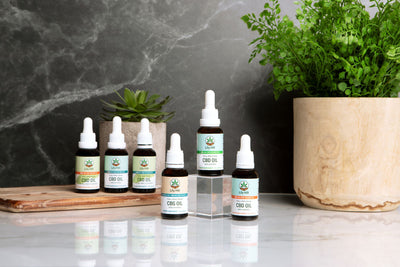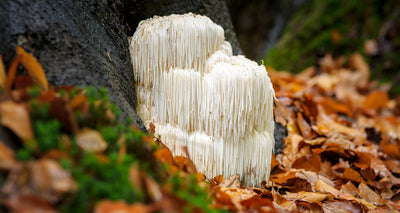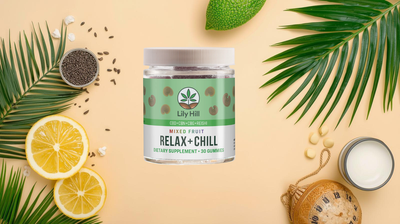If you’ve ever wondered about the difference between hemp oil and CBD, you’re not alone. The two terms are often used interchangeably, but they’re actually quite different—and understanding those differences can help you choose the right product for your needs.
CBD Oil vs Hemp Extract
At its core, hemp oil—also known as hemp seed oil—is made by pressing the seeds of the hemp plant. It’s packed with nutrients like omega-3s and vitamins, but it contains little to no CBD. That makes it a great option for cooking or skincare, but not for targeted cannabinoid support.
CBD oil, on the other hand, comes from the flowers and leaves of the plant where cannabinoids are most concentrated. When comparing CBD oil vs hemp extract, the key distinction is that CBD oil interacts with the body’s endocannabinoid system, making it useful for supporting stress relief, balance, and relaxation.
Hemp vs Cannabidiol
So, what’s the debate around hemp vs cannabidiol? Hemp is the plant itself, while cannabidiol (CBD) is just one of the active compounds within it. Hemp-derived products can include everything from hemp seed oil to CBD-rich extracts—so knowing what you’re buying is essential.
For example, Lily Hill offers 1000mg CBD oil crafted from organic, Vermont-grown hemp, as well as CBD oil for pets to support your four-legged friends. Retailers can also take advantage of our wholesale CBD program, bringing trusted products to their communities.
Curious about other cannabinoids? Our guide on CBD vs CBG breaks down how they compare and complement each other.
Is Hemp Oil the Same as CBD?
The short answer: no. Is hemp oil the same as CBD? Definitely not. Hemp oil is nutritional, while CBD oil is therapeutic. Both have value, but they serve very different purposes.
Key Differences Between Hemp Oil and CBD
Let’s cut through the haze and get to the core of what separates hemp oil from CBD. These two products, often lumped together in casual conversation, are as different as a cozy Vermont farmhouse and a bustling city dispensary. Both come from the same plant family, but their journeys—and their impacts on your wellness—diverge sharply.
First, the source. Hemp oil, sometimes called hemp seed oil, is pressed directly from the seeds of the hemp plant. It’s a nutritional powerhouse, packed with omega fatty acids, vitamins, and minerals, making it a fantastic addition to your kitchen pantry or skincare routine. But here’s the kicker: it contains virtually no cannabinoids. That means no CBD, no THC, nothing that’s going to interact with your body’s endocannabinoid system. It’s like getting a beautifully crafted guitar with no strings—great to look at, useful in its own way, but it’s not going to play the tune you might be seeking for stress or discomfort relief.
CBD, on the other hand, is extracted from the flowers, leaves, and stalks of the hemp plant, where the magic of cannabinoids lives. It’s a compound specifically isolated for its potential to promote relaxation, ease everyday aches, and support mental clarity. Unlike hemp oil, CBD engages directly with your body’s natural systems, offering a targeted approach to wellness. Think of it as the difference between sipping herbal tea for general hydration and taking a carefully dosed tincture for a specific effect—it’s intentional, it’s precise.
Then there’s the use case. Hemp oil shines as a dietary supplement or a moisturizing agent; you might drizzle it over a salad or rub it into dry skin for a nutrient boost. CBD, though, is often sought out for deeper, more personal reasons—those nagging worries that keep you up at night, or the stiffness that greets you every morning. It’s not just a product; for many, it’s a lifeline to feeling more like themselves.
Legally, they’re worlds apart too. Hemp oil has no psychoactive components and faces little regulation beyond standard food and cosmetic rules. CBD, while non-intoxicating when derived from hemp and containing less than 0.3% THC, operates in a grayer area, with varying state laws and federal guidelines shaping how it’s sold and consumed. It’s a reminder that even in the pursuit of natural wellness, the modern world loves its fine print.
So, when you’re standing at the crossroads of hemp oil versus CBD, ask yourself: are you looking for a general health boost, or are you seeking something to address a specific need? The answer will guide you to the right path, and in this community of wellness seekers, there’s no wrong turn—only the one that feels right for you.
Join the Lily Hill Family for Natural Wellness
Hey there, folks—let’s talk about finding real, grounded solutions for your wellness journey. At Lily Hill, we’re not just another CBD company; we’re a Vermont-based, family-owned crew passionate about bringing you premium, organic hemp products that actually work. Our mission? To make high-quality CBD accessible to everyone with compassionate pricing and a heart for community. Whether you’re easing everyday stress or seeking relief from discomfort, we’ve got full-spectrum oils, softgels, topicals, and even pet products crafted from local, sustainably grown hemp.
We know trust matters. That’s why every batch is third-party tested for purity and potency, and we’re transparent about every step. Plus, we’re here for you with:
• Special Assistance Programs for veterans, low-income, and disabled individuals—because wellness shouldn’t be a privilege.
• A Satisfaction Guarantee—love it within 30 days or get a refund or exchange, no questions asked.
• Rewards for Loyal Customers—join our family and earn benefits with every purchase.
Ready to feel the difference? Explore Lily Hill’s range today and see why our community swears by natural, trustworthy CBD. Let’s build a healthier, happier life together—start your journey now at lilyhillcbd.com.
Common Uses for Hemp Oil
Let’s dive into the nitty-gritty of hemp oil, a versatile player in the wellness game that’s been quietly making waves for years. Extracted from the seeds of the hemp plant, hemp oil is often misunderstood, but it’s got a range of practical uses that can fit into anyone’s daily grind—whether you’re battling stress or just looking to level up your self-care routine.
First off, hemp oil shines in the kitchen. It’s packed with omega-3 and omega-6 fatty acids, making it a nutritional powerhouse for those who want to boost their diet without much fuss. Drizzle it over salads, blend it into smoothies, or use it as a finishing touch on roasted veggies. It’s got a nutty, earthy vibe that pairs well with hearty dishes, though a heads-up: don’t cook with it over high heat, as it can lose its beneficial properties. Think of it as the supportive sidekick to your culinary adventures, not the main hero.
Beyond the plate, hemp oil has a strong rep in skincare. Its moisturizing properties are a godsend for dry, irritated skin, and it’s often found in lotions, balms, and even lip products. People dealing with redness or sensitivity swear by its calming effects, thanks to those fatty acids working overtime to nourish the skin barrier. Massage a few drops into your hands or face after a long day, and you might just feel like you’ve hit the reset button. It’s not flashy, but it gets the job done.
Then there’s the wellness angle. Some folks turn to hemp oil for its potential to support overall balance—think of it as a subtle nudge rather than a dramatic overhaul. It’s often used in massage oils to ease tension in aching muscles or joints, offering a natural way to unwind after life’s inevitable grind. While it doesn’t have the psychoactive punch of other hemp-derived products, its gentle approach still resonates with those seeking a grounded, holistic vibe.
Hemp oil’s appeal lies in its simplicity and accessibility. It’s not promising miracles, but it’s a reliable tool in the toolkit for anyone curious about natural solutions. Whether you’re a skeptic or a wellness warrior, there’s likely a corner of your routine where this unassuming oil can carve out a spot.
How Each Oil Is Made
Let’s pull back the curtain on the crafting of hemp oil and CBD oil—two products that, while sharing a common root, diverge sharply in their production journeys. Think of this as a peek into the kitchen of nature’s apothecary, where the recipes are as much about patience as they are about precision.
Hemp oil, often called hemp seed oil, is the simpler of the two. It’s derived from the seeds of the hemp plant, a process that’s about as straightforward as squeezing juice from an orange. The seeds are cold-pressed, a method that avoids heat to preserve the natural nutrients—think omega fatty acids and vitamins. There’s no deep extraction wizardry here; it’s just the raw, unadulterated essence of the seed, filtered and bottled. The result is an oil that’s more culinary than therapeutic, often finding its way into smoothies or salad dressings for a nutty kick.
CBD oil, on the other hand, is a whole different beast—a labor of love that demands a meticulous dance of science and nature. It starts with the flowers, leaves, and stalks of the hemp plant, where the magic compound, cannabidiol (CBD), resides. These parts are harvested and subjected to extraction methods like CO2 extraction, which uses pressurized carbon dioxide to pull out the cannabinoids without leaving behind nasty solvents. It’s a high-tech process, akin to brewing a perfect espresso shot—every variable matters. Once extracted, the CBD is often blended with a carrier oil (like MCT or hemp seed oil itself) to create a tincture that’s ready to deliver its calming, supportive effects. The process doesn’t end there; rigorous testing often follows to ensure purity and potency, a step that separates the good from the great in a market flooded with promises.
Both oils start from the same humble hemp plant, but their paths split—one a simple press, the other a complex extraction. It’s this divergence in creation that shapes their purpose, their feel, and ultimately, their place in your wellness routine.
Finding Your Path to Wellness with Lily Hill
As we’ve unraveled the differences between hemp oil and CBD, it’s clear that choosing the right product is a deeply personal journey—one rooted in understanding your needs and the integrity of what you’re putting into your body. Here at Lily Hill, we’re not just crafting full-spectrum CBD products; we’re building a community in Vermont where wellness is accessible to all. Our certified organic hemp, grown on local farms with sustainable, chemical-free practices, reflects our commitment to purity and care. Every bottle of oil, every softgel, every topical is a promise of quality—formulated in-house or at GMP-certified facilities, rigorously third-party tested, and backed by our 30-day satisfaction guarantee.
We know life’s stresses and discomforts don’t discriminate, which is why our CBD assistance program supports veterans, low-income individuals, and those with disabilities. With compassionate pricing and a rewards program for our loyal family, we’re here to walk alongside you. Whether you’re easing everyday aches or seeking calm amidst chaos, Lily Hill is your partner in natural wellness. Let’s cultivate a healthier tomorrow, together—because premium products shouldn’t come at a premium cost. Reach out, explore our range, and find what resonates with you.








